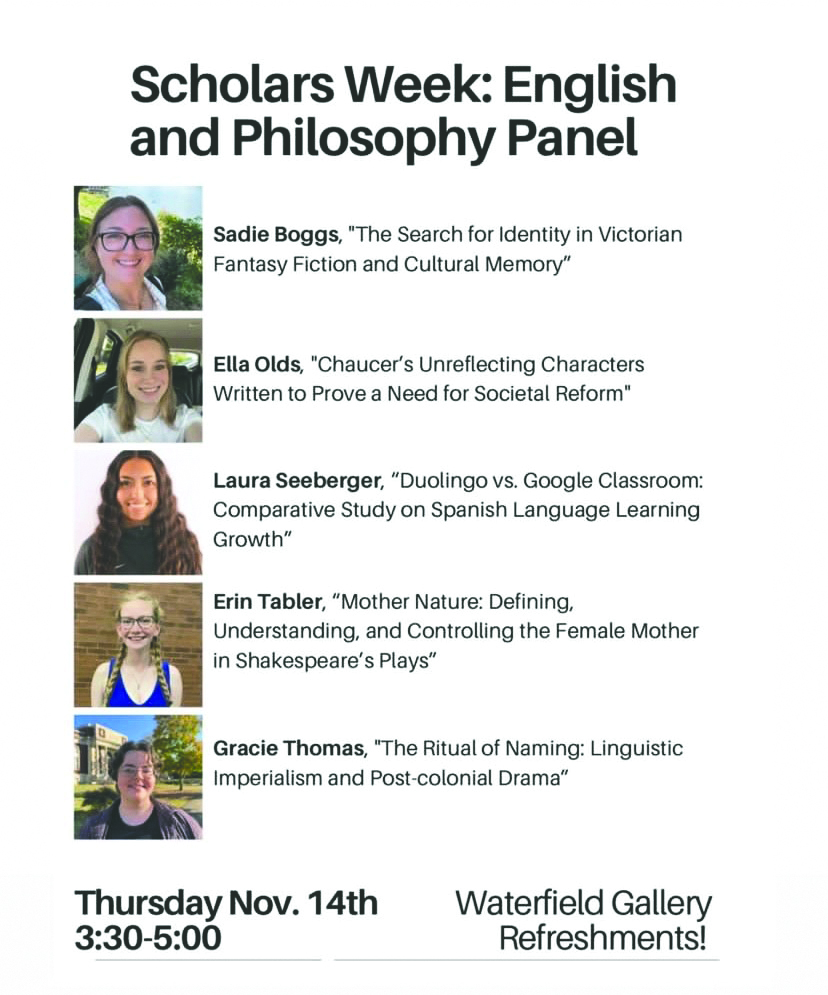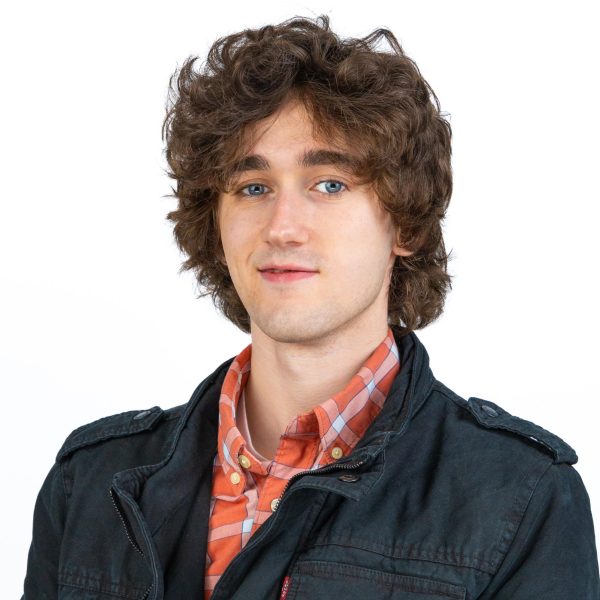Scholars Week for the fall semester is fast-approaching. During this week, which will run Nov. 11-15, senior students will display their scholarship of undergraduate research and creative work in a university-wide event.
Jeff Osborne, professor of English and assistant director of the Honors College, said the goal of this research is to take a deep dive into a narrow topic or issue in the field, potentially discover something new about it, and then produce new knowledge.
“It’s also valuable because student research sometimes makes a contribution to existing knowledge in the field,” Osborne said. “Universities aren’t simply about handing out degrees so people can get jobs. They are about producing and publishing knowledge.”
The research varies by discipline and mentorship with a faculty member. The research itself can consist of lab work, archival research, reviews of existing scholarship on a topic in the field, co-writing a scholarly paper, etc., according to Osborne.
He said students can already take the initiative to start reading scholarly work without the guidance of a professor.
Anna Minor, senior psychology major, is writing her thesis on a research study she’s conducting on how our perspective of stress plays a role in stress management. Minor said she seeks to examine factors that may influence efficiency and productivity.
She titled her research “Stress as a Means of Success: Investigating the Effect of Stress Appraisals on Willpower, Ego Depletion and Physiological Responses in College Students.”
Minor said she is excited and proud of the research. She intends to publish her findings in a scholarly journal with the time and effort she’s put into it.
“I am presenting it at scholars week, but I’ll say that the most exciting part of it is a tentative publication,” she said.
Minor said she’s looking forward to analyzing the results to be able to make a meaningful contribution to research and psychology.
“This research is extremely important to me,” Minor said. “I will be applying to graduate school soon, and undergraduate research is essentially the most important thing that you can do with respect to getting into grad school (in the psych world, at least).”
Minor said her research was especially important because she had conducted this study alongside her adviser. She suggests students writing their own thesis find an adviser with similar interests and feel they can work with.
“I’ve really enjoyed working with my adviser and my committee members,” she said.
Minor said she recommends students make their thesis a time commitment and put in the work consistently throughout the semester, as this is more beneficial than if they put it off.
Gracie Thomas, senior English literature major who prefers they/them pronouns, is framing their thesis on how colonial language disrupts and damages indigenous ones.
Thomas is using the Irish play “Translations” by Brian Friel, as their primary text to analyze the process of anglicization of Irish place names and colonial mapmaking.
They’ve titled their thesis, “The Ritual of Naming: Linguistic Imperialism and Post-colonial Drama.”
Thomas said the work is challenging but has always been important to them, and while it can be often overwhelming, it has been rewarding to be so invested in one topic.
“It’s by far the biggest project I’ve ever worked on in undergrad,” Thomas said.
Thomas said while the writing has been difficult, it helps to have the passion for the subject and it feels like the culmination of all the skills they’ve built over the years.
Thomas said they’re nervous, excited, proud and a little nauseated about Scholar’s Week.
“I’ve never really liked presenting or public speaking,” Thomas said. “I’m hoping that I know enough and am passionate enough about this thesis to let that speak for itself. I’m a bit restless to get all of it written and polished, but thankfully the excitement is a little more powerful than nerves.”
Thomas said they can’t stress enough the importance of getting words on paper as soon as possible, describing themself as an “Olympic-level procrastinator.”
“It doesn’t have to be good at first, but it has to get done,” they said. “Also, sometimes it’s hard to guess what you’ll be excited about in four months, but try to pick something that you can stick with and not hate by the end of it.”
In Thomas’s experience, they said the process is more rewarding when you care. They advise students to take notice of the topics they learn about and gravitate towards, and to talk to professors about these subjects.
Thomas will present their thesis alongside others on Thursday in Waterfield Library, Nov. 14, 3:30–5 p.m.




























































































